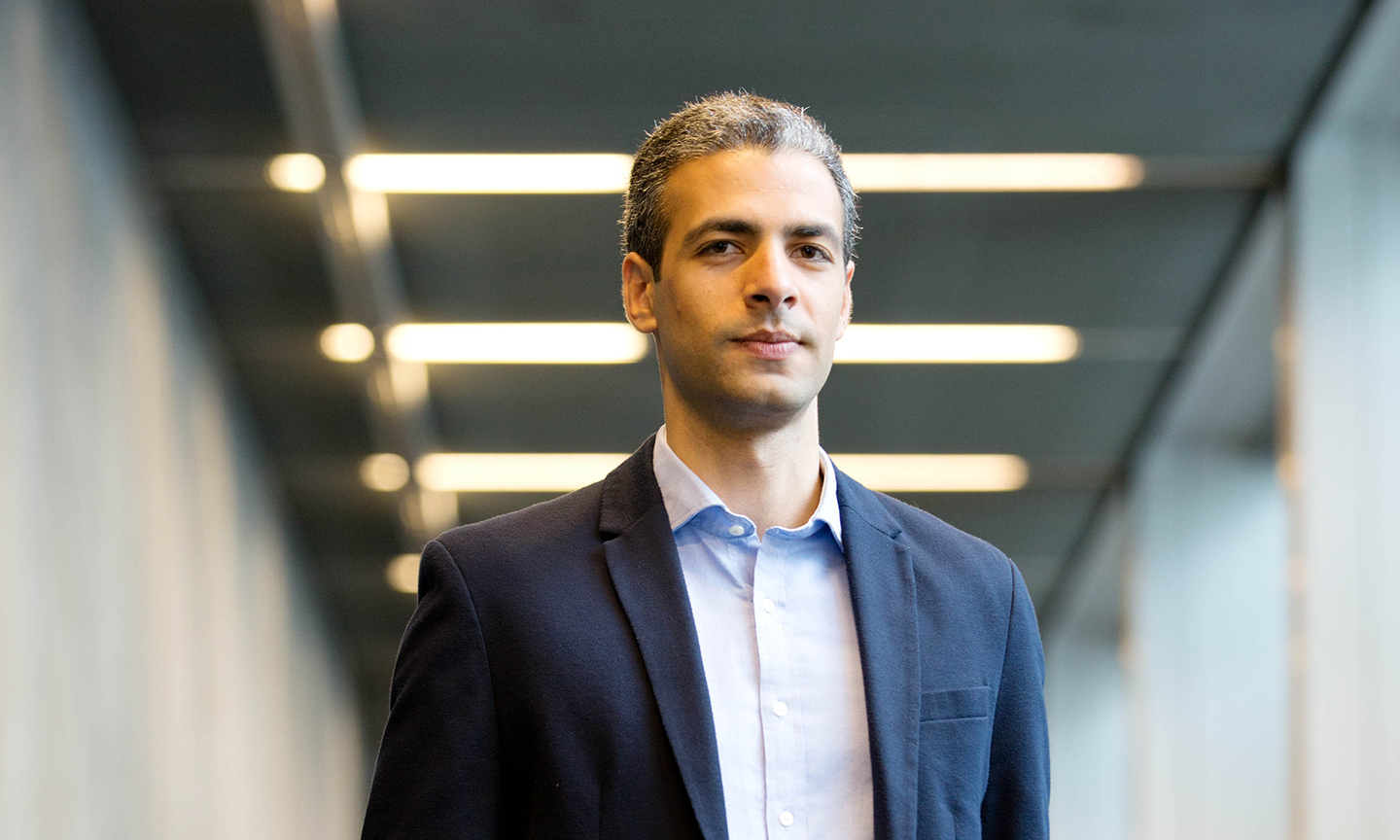
Dr Haytham Fayek, Early Career Development Fellow in the School of Science.
Haytham is an expert on Machine Learning (ML) whose research vision is to build machines that learn, reason and generalize similar to how humans do.
Haytham Fayek’s research capabilities are in Artificial Intelligence, Machine Learning and Deep Learning.
Dr Haytham Fayek, an RMIT alumnus, has returned to our university as an Early Career Development Fellow in the School of Science.
So, what does an Early Career Development Fellow do?
Haytham’s new role has him teaching undergraduate students in Programming Fundamentals for Scientists, supervising several HDRs as well as working on his research projects on deep learning. His desire to take on a career in the world of academia and especially at RMIT University, where he was able to strengthen his already established networks, ensured a smooth transition into his new role.
Haytham brings a wealth of capability to RMIT given his industry experience at Facebook and the research he conducted from 2015 when he was offered a scholarship through the RMIT Vice Chancellor’s PhD Scholarship (VCPS).
Where and what did Haytham study?
While completing his Master’s in Electrical and Electronics Engineering at the Petronas University of Technology, Malaysia in 2012--2014, Haytham worked in an engineering consulting company as an electrical/electronics engineer where he analysed engineering faults and failures of electrical and electronics systems. During his Master’s, Haytham developed a solid interest in Deep Learning, an approach to Machine Learning that decomposes computational models into multiple layers of processing to learn representations of data with multiple levels of abstraction. The next year, Haytham commenced his PhD candidature where he would complete his thesis, “Continual deep learning via progressive learning” and secure his ambition to embark on an academic career. In addition to this, from 2016 to 2018, Haytham worked as a guest lecturer and tutor, teaching image and signal processing and advanced programming at RMIT.
Haytham worked at Facebook in Seattle, USA.
Haytham’s vision for his academic career path is to combine his research capabilities with his work experiences within industry and universities. Hence, when he was offered a 6 month internship in 2016 at Facebook in Seattle, USA, his plans were starting to form. This led to accepting a Postdoctoral Research Scientist position with Facebook, giving him the opportunity to work alongside world-leading researchers. Here, he conducted basic and applied research in deep learning to understand and advance how machines perceive the world while collaborating with others on advancing models for computer vision and machine hearing including other aspects of multi-modal machine learning.
Working in Seattle, which boasts one of the largest technology scenes in the world and attending many conferences on Machine Learning while at Facebook, facilitated his connections with Microsoft, Google, Amazon as well as researchers from North American universities. Working within academia and research helped Haytham better understand how an industry such as Facebook approaches research and engages with universities and the steps that leading universities take when engaging with industry.
Working back at RMIT
Even though it has only been a month since Haytham started working in his current role at RMIT, he is already appreciating and enjoying the university’s diverse research community as well the ease in finding and talking to researchers from other disciplines, Schools and Colleges. He finds that connecting with others who are doing extremely different research to him is exciting and is looking forward to working with researchers across the university, a unique opportunity that other universities or industries may not offer.
How you can connect with Haytham
Machine Learning is a cross-disciplinary area where you can apply it to solve many of the world’s complex problems in collaboration with domain experts. Haytham is looking forward to working with researchers who he can collaborate with to push the boundaries that will help find solutions to modern problems. If your research is in the fields of Machine and Deep Learning and Artificial Intelligence and you would like to connect with Haytham or if your research area is in search of experts within this field, you can contact Haytham via his email address below.
To find out more about Haytham you can go to his website where you will be able to find lots of details about his research interests, publications, invited talks and presentations at various conferences, resume as well as links to his Github, Google Scholar, LinkedIn, ORCID and Twitter accounts.
An interesting item in Haytham’s website in his Blog. It consists of two helpful entries, such as how you can set up a clean mac for pythonic machine learning R&D as well as Speech processing for ML – understanding and computing filter banks and MFCCs.
We'd like to finish Haytham' Staff Profile by asking him the following question:
Question: If you could know the absolute and total truth to one question, what question would you ask?
Haytham's Answer: What is the ultimate question?
In the book, “The Hitchhiker's Guide to the Galaxy”, a supercomputer was asked to answer the “ultimate question of life, the universe and everything,”. After 7.5 million years of computing the answer to the question, the supercomputer responded: “The answer is 42.”. The moral of the story is that asking the right question is more important than the answer.